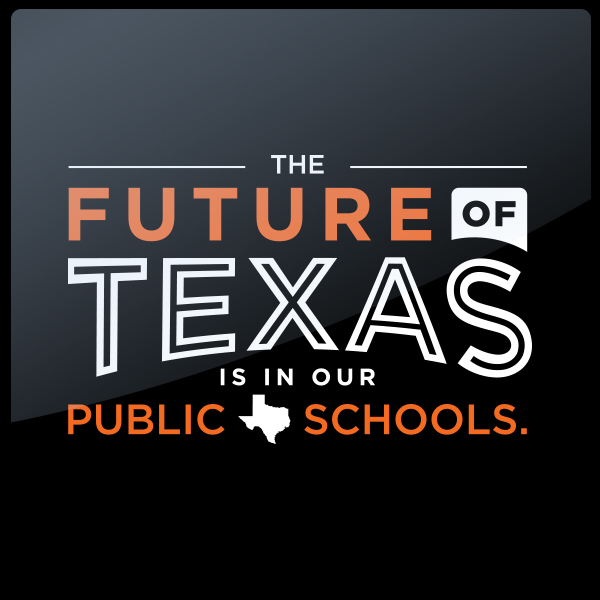
categories
Statewide Headlines Reflect Widespread Doubt About Education Savings Accounts and School Vouchers

April 03, 2023
Warnings for Rural Texas, Teachers, and the Business Community
News headlines from across the state reflect Texans’ concerns about school voucher schemes currently being considered by the Texas Legislature. Parents, educators, business leaders, and investigative journalists worry about the potential effects of school vouchers on students, teachers, families, and the Texas economy.
Education savings accounts, which are really school vouchers – regardless of their branding du jour – allow for taxpayer funds collected for public education to be removed from the public system and used for private education and services. Those private schools and programs are not held to the same standards of access, accountability, and transparency as Texas public schools.

The concept of vouchers has made headlines in Texas since it was first introduced in the 1950s. Texans today may be accustomed to reading about the issue in the news every now and again when the perennial idea is introduced in the Texas Legislature and then later defeated.
But this year, news headlines denouncing vouchers are ubiquitous. And they tell the story of why Texans from across the state are – yet again – voicing concerns about the potential negative impacts of education savings accounts and school vouchers on Texans and Texan values.
Vouchers’ Negative Impacts on Rural Texas
Oftentimes the largest employer in rural communities, public schools are the heartbeat of rural communities. They have historically opposed school vouchers, including ESAs. Public schools are where families have gathered for generations to educate their children, celebrate their students’ activities and passions, and raise future generations of rural Texans.
In a historic legislative session when legislators have billions of dollars in excess, the suggestion of creating a voucher program that can serve the needs of our rural students, when many face a financial cliff from lack of resources, can be seen as negligent and insulting. This seems particularly imprudent when considering that pulling kids from rural districts and sending them to private schools is rarely an option for many rural communities, as reported in The Texas Tribune:
“Rural communities and lawmakers usually oppose ‘school choice’ legislation because there aren’t many private schools in their region. They have been traditionally defensive of their schools, which serve as important community hubs and are usually among the biggest employers in their regions.”
Every Texan reports a lack of access to private schools for students in rural communities. They found:
“. . . vast stretches of the state where there are no private schools to choose from, and in places like Midland and Odessa, the few private schools that do exist could never support the growing student population.”
Their reporting summarized the threat of vouchers to rural Texas:
“This model is especially harmful to rural Texans who rely on public schools not only for their children’s education but also to serve as the institutional core of their community. Schools in rural areas are often a hub for social, recreational, and cultural life, and they play a vital role in improving community health.”
Education Savings Accounts Will Negatively Impact Teachers
Texas faces a teacher shortage crisis, and more teachers than ever are considering leaving the profession. Texas teachers report challenges due to working conditions, feeling disrespected, and not having enough non-instructional time to fulfill campus, district, and state-mandated requirements. Teachers often say they would be satisfied in the profession “if they could just teach.”
But when asked what is the top factor that would keep them in the classroom and elevate respect for the profession, they talk about teacher pay. According to recent data about the Texas teaching workforce, “when viewed as constant 2021 dollars, the average base pay of teachers in 2020–21 was comparable to that of teachers in 2015–16. Teacher pay has not significantly increased over the past decade, and the wage premium for each additional year of experience in teaching has actually decreased.”
School vouchers and education savings accounts would only exacerbate this problem. By costing the state hundreds of millions up to billions of dollars in future years, school vouchers would limit available funding to increase teacher salaries and benefits. School vouchers would remove funding from an already starved system that is funding teachers at the same rate it was eight years ago, before skyrocketing inflation and steep property value increases.
The San Antonio Report recognized this in a recent article referring to, “the teacher crisis in the state, with most school districts unable to attract enough qualified applicants to fully staff campuses.”
The article also highlighted Texas’ chronic underfunding of public education issues, saying, “Texas fails its school-age population, ranking 48th in child health and 33rd in education outcomes in 2022.”
Not only do vouchers use up funding that could support teacher pay increases, but vouchers also send a message to teachers that the state would rather remove kids from public schools than support the programs and personnel who contribute to a positive student experience. That leaves teachers to carry the torch to support students and their families, including needs that are well beyond a teacher’s responsibilities. Texas teachers report spending $700 annually out of their own pockets to support student needs such as school supplies, backpacks, clothing, and food.
Instead of spending hundreds of millions of state dollars on school vouchers, legislators should invest in Texas teachers with salary increases and classroom support, and ensure high-quality learning for all students.
At a time when Texas teachers need our support more than ever, vouchers are not the answer. Education savings accounts and school vouchers would divert funding, attention, and energy away from public school teachers and their acute needs for salary increases and structural changes to promote more autonomy, a better work/life balance, and greater respect for the profession. More than three-quarters of Texas teachers are seriously considering leaving the profession, and having a quality teacher leader in every classroom is essential for student success. Students can’t be taught effectively by substitute teachers or teachers who aren’t adequately prepared for today’s classrooms.
Other states that have implemented vouchers now pay their teachers less than ever, as reported by the Texas Observer:
“Critics say Arizona used vouchers for special needs students as a trojan horse for school privateers to divest, divert, and dismantle the state’s public education system, which now ranks in the bottom three among all U.S. states for per-pupil spending, teacher retention, and teacher pay.”
Commenting on the effect of school vouchers, Patti Quinzi tells the Texas Observer:
“This hurts teachers, who spend hundreds of dollars of their own money to buy basic school supplies, and it hurts students, who lose valuable funding for support services and extracurricular programs.”
Vouchers Have Negative Impacts on Student Learning Outcomes and our Future Workforce
Since nearly 90% of Texas students attend public schools, the foundation of our state’s future economy hinges on the success of our educators, schools, and students. And resources play a huge part in that. Texas public schools rank in the bottom 10 nationally for per-pupil funding, our educators and students deserve more funding, and our taxpayers deserve to know their tax dollars fund educational programs that are transparent and accountable to the public.
Since school vouchers and Education Savings Accounts are used for private schools and private programs, there is no guaranteed accountability for results. These entities are not required to use state curriculum, give state standardized tests, or report student performance outcomes.
This “black box” of state funding would not serve our schools or our interests in building a future workforce. The San Antonio Express-News says:
“Our public schools need greater resources. They don’t need to have their existing resources drained to fund private schools that aren’t accountable to the state and face no requirement to admit students they don’t want.”
The Houston Chronicle editorial board countered positive claims about vouchers point by point in a recent article. It included comments from Dr. Joshua Cowen, policy analyst and professor of education policy at Michigan State University, about the issue of accountability for student learning:
“Recent studies of Louisiana, Ohio and other large-scale voucher programs have shown ‘catastrophic, devastating outcomes’ in student test scores, on par with the disruption caused by disasters including Hurricane Katrina.”
This idea was echoed by reporting from The Texas Tribune about a school voucher program proposed early in the 88th Texas Legislative Session:
“Sen. Middleton’s proposal (SB 176), like most education savings account programs, does not require private schools or education services vendors to report test results or how they’re spending taxpayers’ money.”
Up in North Texas, Irving Weekly reports why vouchers are bad for business. A guest columnist connects negative voucher effects with building the workforce and a strong business community:
“At a time when Texas needs to ramp up their workforce development education, it seems foolhardy to consider shifting funds away from the bulk of that toward private entities.”
He concludes with: “While Texas public schools have their problems, shifting public funds away from the sparse resources that many public schools currently have would lead to disastrous outcomes for educators, students, and business leaders.”
News reports from across Texas confirm what we all know to be true about school vouchers – they wouldn’t work for rural communities, they would stifle opportunities to support public school teachers, and they would weaken our state’s future workforce with a bad track record for student achievement and accountable results.



